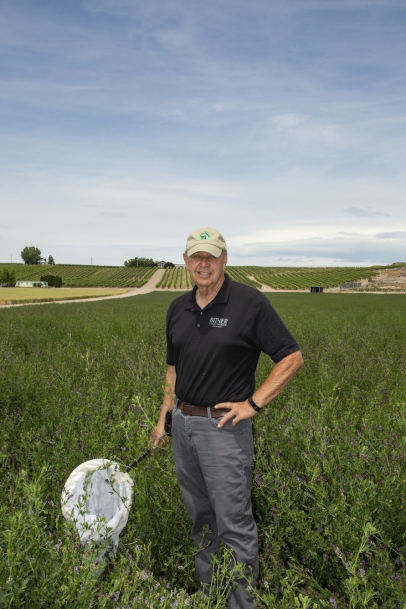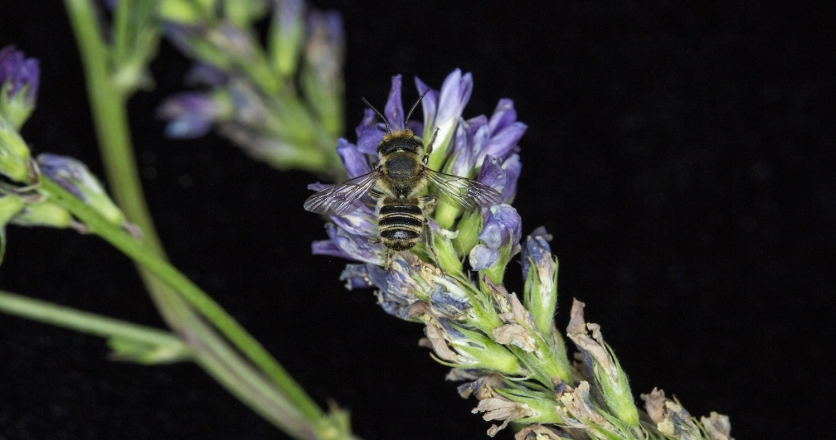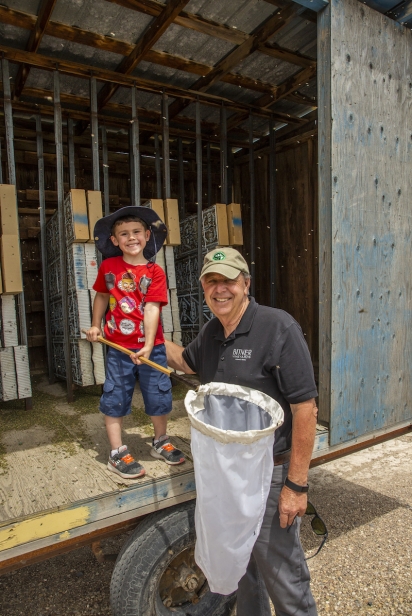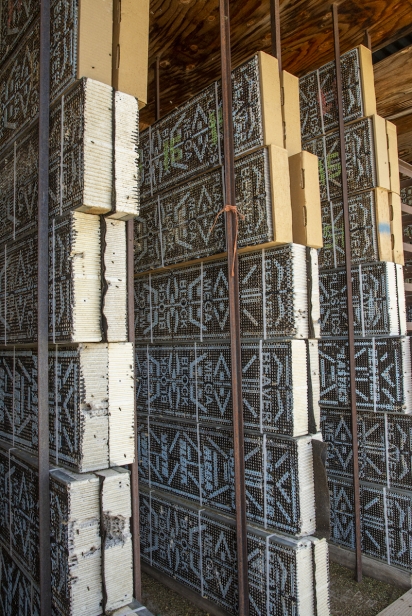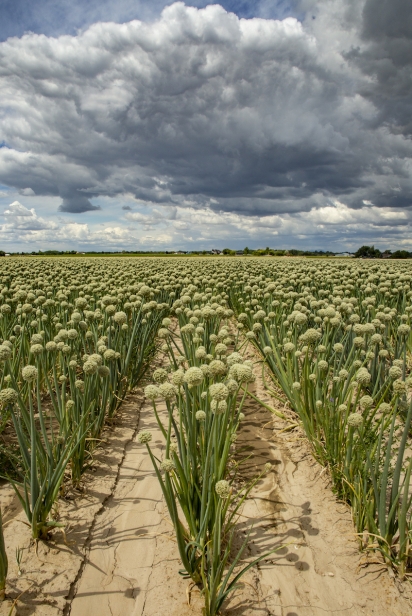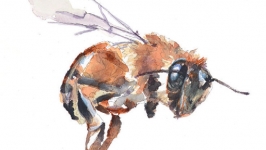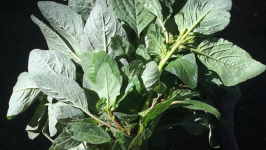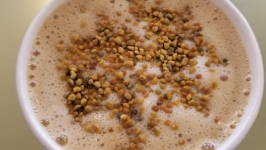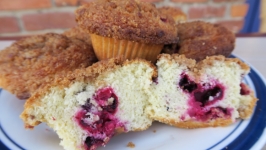‘Genial, Efficient, Tireless'
Ron Bitner isn’t afraid of bees. His fingers, he explains as he homes in on a white-faced, green-eyed Alfalfa Leafcutter bee perched on the side of a bright blue bee shelter, have formed such thick layers of callus over the years that he hardly feels the stings. A moment later, Bitner’s hand swoops toward the wooden slats, and he comes up with a tiny bee the size of a just-picked sunflower seed.
“This is a little male bee, he doesn’t have a stinger,” said Bitner. “You can just hold him. They can’t sting you, but they act like they’re going to try.”
When Bitner loosens his hold, the bee darts away into a field of alfalfa flowering nearby, its tiny body quickly lost among the purple blooms. If there’s anyone you can trust to know which bees are safe to set in your open palm and which should be avoided, it’s Ron Bitner. He’s a world-renowned entomologist with 40 years of experience, and the Leafcutters (Megachile rotundata) swarming around that bee shelter in Canyon County farm country are his specialty.
When Bitner traveled from Purdue University to Utah State University to complete his PhD on the Leafcutter bee in the mid 1970s, it was still a new discovery in his home state of Idaho. But it wasn’t long before the litte pollinator had single-handedly put the Gem State on the map of alfalfa and other vital seed crops.
“That bee has taken me all over the world, but it’s the primary bee in this valley that pollinates alfalfa for seed, and it makes this valley one of the top producers of win- ter-hardy varieties of seed in the world,” Bitner said.
One in every three bites of food people eat are made possible by bees, and while honey bees deserve a good share of the credit for those mouthfuls, Leafcutters and the 4,000 other species native to the U.S. are also vital pollinators. In fact, when it comes to some crops, a Leafcutter’s efficiency puts a honey bee’s to shame.
“In four weeks they’ll set 1,000 pounds of [alfalfa] seed,” said Bitner. “In Australia, with what honeybees were setting, it took three months to get 200 or 300 pounds of seed.” The Honeybee Conservancy website prefaces its description of the Leafcutter with three words: “genial, efficient, tireless.”
Though Bitner is best known in Boise as the man behind Bitner Vineyards wines, he has never stopped advocating for bees. His Caldwell vineyard, which is both Low Input Viticulture and Enology (LIVE) and Bee-Friendly Farming certified, is meticulously pollinator-friendly, and he takes every opportunity to visit local elementary schools and educate kids.
“I developed a program years ago, and there’s a little PowerPoint on ‘Bees to Big Macs,’” he said. “In a Big Mac meal there are at least 16 different food items you eat. Well, 14 of them start with bees.”
In February, Bitner was elected to the board of the Pollinator Partnership, the world’s largest nonprofit dedicated to the protection of pollinators. Its president and
CEO, Laurie Davies Adams, said Bitner shares her mission to promote pollinators and bee-friendly farming on a global scale. People can help by planting native plants, supporting pollinator-conscious farmers and buying local food.
“It’s important for people to know that bees are not terrifying,” she said. “By and large they’re so busy looking at plants for food that you’re not on their radar.”
If she could, Adams would challenge everyone to go out into a floral landscape, sit quietly and take a moment to look and listen.
“If you don’t see any activity, that’s when you should be afraid,” she said.
Back in the alfalfa field, Bitner peers into the bee shelter like a proud parent. It’s buzzing with between 30,000 and 50,000 Leafcutters, darting around and crawling in and out of their nest blocks. The bees, he explains, are hard workers, but they don’t live very long. They build their leaf-scrap-lined nests, pollinate crops, lay or fertilize their eggs and die all in the space of a month.
Unfortunately, most of the bees that fill the shelters dotting Canyon County these days come from Canada, as an outbreak of Chalkbrood disease has collapsed local colonies.
“Out of those 4,000 different kinds of bees in the U.S., there are only five that a farmer can buy off the shelf,” said Bitner. Considering all of the alfalfa, carrot seed, onion seed and other crops we grow here in Idaho, we’re lucky Leafcutters are one of them.
To learn more about Bitner Vineyards, the Pollinator Partnership and the work both are doing for the bees, visit Bitner Vineyards and Pollinator.org.
The Honeybee Conservancy | @thehoneybeeconservancy
Bitner Vineyards | @bitnervineyards
Pollinator.org


